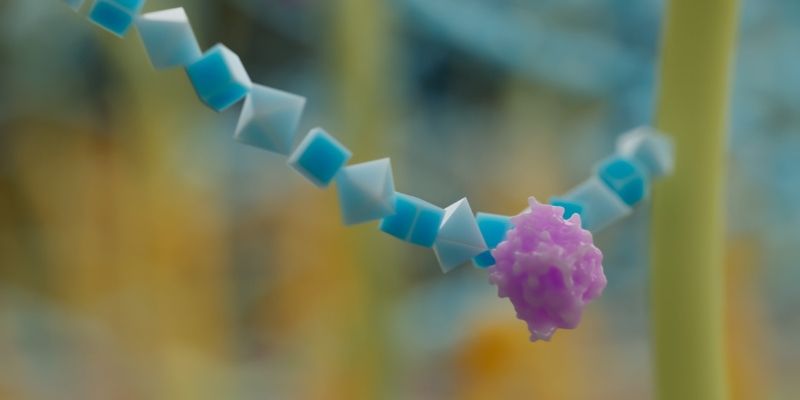
Scientists have found a way to create artificial sugars that could lead to better ways to diagnose and treat diseases more accurately than ever before, according to a new study co-led by Leeds.
They hope their findings, newly published in the journal Nature Communications, could eventually lead to simple, at-home tests for diseases such as cholera, which can kill within hours, and currently requires laboratory analysis of stool samples.
Sugars play a crucial role in human health and disease, far beyond being just an energy source. Complex sugars called glycans coat all our cells and are essential for healthy function. However, these sugars are often hijacked by pathogens such as influenza virus, coronavirus, and the bacteria that cause cholera to infect us.
One big problem in treating and diagnosing diseases and infections is that the same glycan can bind to many different proteins, making it hard to understand exactly what’s happening in the body, which has made it difficult to develop precise medical tests and treatments.
Collaboration
In a breakthrough, a collaboration of academic and industry experts in Europe, including from the University of Leeds, have found a way to create artificial sugars that could block the pathogens.
For a multi-site project it was one of the most highly collaborative and integrated projects I have been involved in.
The finding offers a promising avenue to new drugs and could also open doors in diagnostics by ‘capturing’ the pathogens or their toxins. The paper’s lead author is Professor Bruce Turnbull, from the School of Chemistry and Astbury Centre for Structural Molecular Biology at the University. Earlier this year, he won the Royal Society of Chemistry’s Bader Prize, in recognition of his achievements in research and innovation.
Professor Turnbull said: “Glycans that are really important for our immune systems, and other biological processes that keep us healthy, are also exploited by viruses and toxins to get into our cells. Our work is allowing us to understand how proteins from humans and pathogens have different ways of interacting with the same glycan. This will help us make diagnostics and drugs that can distinguish between human and pathogen proteins.”
Researchers from eight different universities worked together on the five-year project. Professor Turnbull said: “For a multi-site project it was one of the most highly collaborative and integrated projects I have been involved in.”
Building blocks
The researchers used a combination of enzymes and chemical synthesis to edit the structure of sugars by adding fluorine atoms. Fluorine is the most reactive and electronegative element, meaning it can strongly pull electrons from neighbouring atoms. It is very small, meaning that the sugars keep their same 3D shape, but the fluorine atoms interfere with how proteins bind to them.
Dr Kristian Hollie, who led production of the fluoro-sugar library at the University of Leeds and was joint first author of the paper, said “We used enzymes to rapidly assemble fluoro-sugar building blocks to make 150 different versions of a biologically important glycan. We were surprised to find how well natural enzymes work with these chemically modified sugars, which makes it a really effective strategy for discovering molecules that can bind selectively.”

3D illustration of a virus-like particle binding to glycans at a cell surface. Credit: Phospho biomedical animation.
The team found that some of the sugars they prepared could be used to detect the cholera toxin – a harmful protein produced by bacteria – meaning they could be used in simple, low-cost tests, similar to lateral flow tests, widely used for pregnancy testing and during the COVID-19 pandemic.
The study provides evidence that the artificial “fluoro-sugars” can be used to fine-tune pathogen or biomarker recognition or even to discover new drugs. They also offer an alternative to antibodies in low-cost diagnostics, which do not require animal experiments and are heat stable.
The team included researchers from eight different universities: Leeds, Imperial College London, Manchester, Warwick, Southampton, York, Bristol, Ghent University in Belgium, as well as the biotechnology company Prozomix. The project was funded through a Biotechnology and Biological Sciences Research Council (BBSRC) Industrial Biotechnology Catalyst grant.
Further Information
The paper, Synthesis and screening of a library of Lewis-x deoxyfluoro-analogues reveals differential recognition by glycan-binding partners, is published in Nature Communications.
For media enquiries, please email Deb Newman in the University of Leeds press office via d.newman@leeds.ac.uk